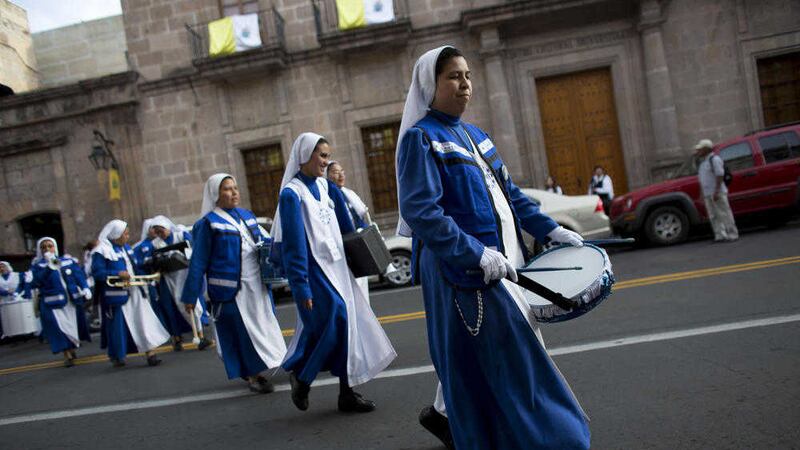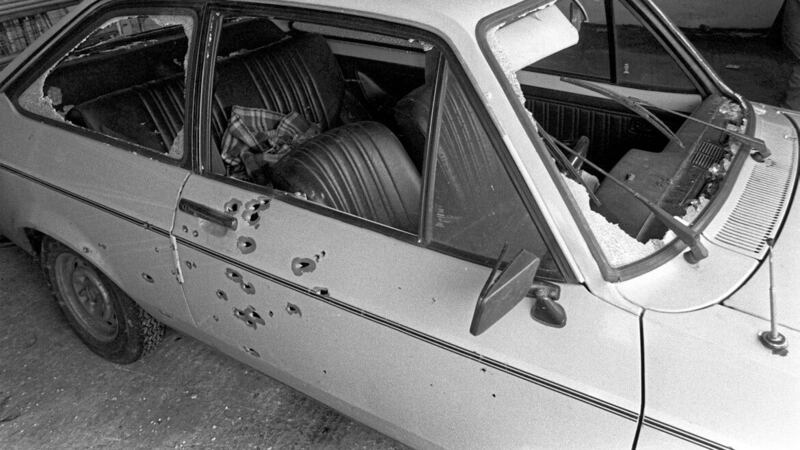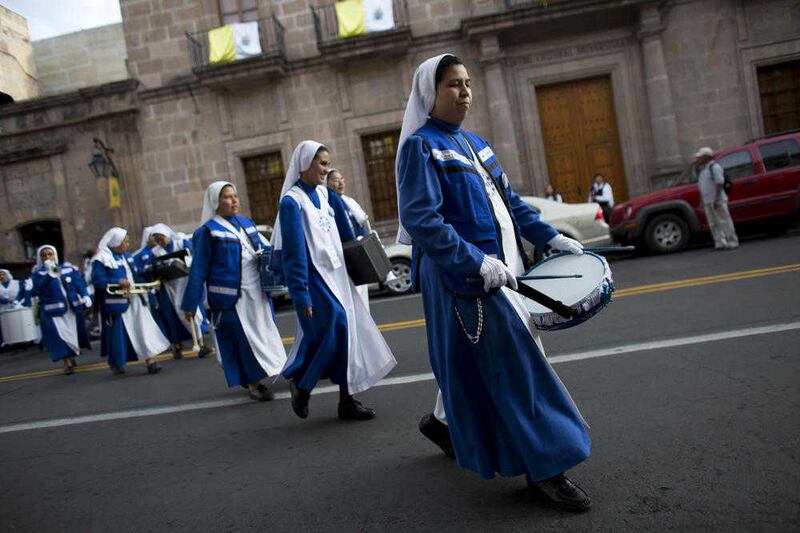Pope Francis has urged Mexican priests not to resign themselves to a society dominated by drug-fuelled violence and corruption but to get out of their comfortable lives and fight the injustices tormenting their flock.
Francis issued the appeal during a Mass for Mexico's clergy in the capital of the state of Michoacan, a hotbed of the country's drug trade.
It was the first event of a day-long visit to Morelia that includes a meeting with young people, a fixture of papal trips that often produces some of the most memorable and spontaneous moments.
Francis' visit to Morelia, though, is also a symbolic vote of confidence for the city's archbishop, Alberto Suarez Inda.
Like Francis, Archbishop Suarez Inda has called for Mexican bishops to be closer to their people and not act like bureaucrats or princes.
Last year Francis made him a cardinal - an unambiguous sign that Francis wants "peripheral" pastors like him at the helm of the Church hierarchy.
In his homily, Francis told the priests and nuns to not become resigned to the problems around them or give in to paralysis, which he called the devil's "favourite weapon".
"What temptation can come to us from places often dominated by violence, corruption, drug trafficking, disregard for human dignity and indifference in the face of suffering and vulnerability? What temptation might we suffer over and over again when faced with this reality which seems to have become a permanent system?" Francis asked.
"I think we can sum it up on one word: resignation."
Rather than give up, Francis urged the clerics to look to the model of Vasco de Quiroga, a 16th-century Spanish bishop who came to New Spain and founded utopian-style indigenous communities where agriculture and handicrafts were taught.
A Franciscan, he was affectionately known by many indigenous as Tata Vasco, or Father Vasco in the Purepecha language.
Francis said that when Vasco de Quiroga saw Indians being "sold, humiliated and homeless in marketplaces" due to colonial exploitation, he did not resign himself to inaction but rather was inspired to fight injustice.
Since beginning his Mexico trip on Friday night, Francis has repeatedly taken to task the Mexican Church leadership, many of whom have cosy ties with the country's political and financial elite, and are loathe to speak out on behalf of the poor and victims of today's social injustices.
On Saturday in Mexico City, he scolded what he called gossiping, career-minded and aloof clerics, and admonished them to stand by their flock and offer "prophetic courage" in facing down the drug trade.
Archbishop Suarez Inda clearly backs Francis's programme, echoing the Pope's admonition that "pastors should not be bureaucrats and we bishops should not have the mentality or attitude of princes".
Much of Michoacan is part of a region called Tierra Caliente, or the Hot Lands, known for both its blistering temperatures and brutal tactics by gangsters eager to control lucrative drug-production territory and smuggling routes.



